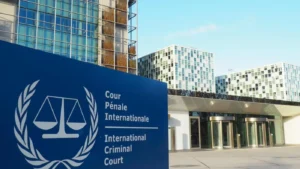Message of the WHO Regional Director for Africa, Dr Matshidiso Moeti, on World Malaria Day 2018
Message of the WHO Regional Director for Africa, Dr Matshidiso Moeti, on World Malaria Day 2018
World Malaria Day on 25 April focuses global attention on malaria and its devastating impact on families, communities and development. The theme for this year, “Ready to beat Malaria”, stresses the need to accelerate efforts to defeat malaria. Countries have committed to ending the malaria epidemic by 2030 as one of the Sustainable Development Goals.
Malaria remains a major public health and development challenge. The World Malaria Report 2017 documents an increase in global malaria cases in 2016 compared to 2015. In the African Region there were 194 million new cases and 410 000 deaths in 2016. Fourteen countries with the world’s biggest malaria problem are in sub-Saharan Africa, and account for 80% of the global burden.
Many countries are not on track to achieve the targets of the Global Technical Strategy for Malaria 2016-2030. The pace of progress has slowed or stalled, with significant gaps in the implementation of measures to prevent malaria. International and domestic funding for malaria prevention and control has stagnated.
However, overall trends show that between 2010 and 2016, estimated new cases of malaria in the African Region dropped by 20%, and deaths from malaria declined by 37%. Five countries in the Region (Ethiopia, Madagascar, Senegal, Gambia and Zimbabwe) are among 16 globally that witnessed a decrease in malaria cases and deaths by more than 20% over 2015 and 2016. Furthermore, six other countries of the Region (Algeria, Botswana, Cabo Verde, Comoros, South Africa and Swaziland) can potentially eliminate malaria by 2020.
Countries in the African Region also recorded the biggest rise of malaria testing in the public sector, from 36% of suspected cases in 2010 to 87% in 2016. The use of insecticide-treated nets and indoor spraying with insecticides are key strategies in combatting malaria. Over half the people at risk of malaria across sub-Saharan Africa have been sleeping under insecticide-treated nets for the past five years, indicating some success in behaviour change and outreach campaigns. This progress needs to be sustained.
Elimination of malaria requires above all political leadership at the highest level, as well as leadership of programmes, resource mobilization, and intersectoral and cross-border collaboration. We are ready to beat malaria, but the pace of progress must be accelerated to achieve a 40% drop in global malaria cases and deaths by 2020, compared to 2015 levels.
World Malaria Day is an occasion to renew political commitment and to continue investing for malaria prevention and control. I call on countries affected by malaria to work with development partners to boost investments in malaria prevention and control, especially for new tools to combat malaria. This will propel countries along the road to elimination, and contribute to the achievement of other Sustainable Development Goals, such as improving maternal and child health.
I urge countries to allocate adequate resources and to work across sectors and strengthen cross-border collaboration. With the required resources, strong coordination and dedicated partners, we can accelerate our actions to achieve a malaria-free Africa. We are ready to beat malaria.
elombatdRegional Director Speeches and Messages





